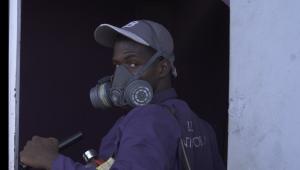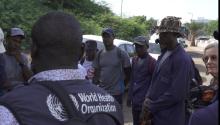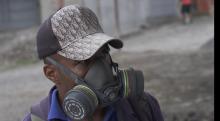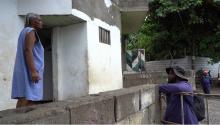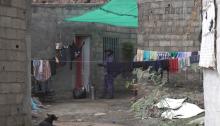Cabo Verde — Strengthening the Capacity of Vector Control Agents
Praia, Cabo Verde — Strengthening the Capacity of Vector Control Agents
With the increasing risk of dengue transmission and the potential reintroduction of malaria, the City of Praia is intensifying its efforts in the prevention and control of vector-borne diseases (VBDs), reinforcing frontline action through specialized training for vector control agents.
This initiative, supported by the World Health Organization (WHO) Cabo Verde, the Ministry of Health, and the United Nations Cabo Verde, is part of the national contingency plan to mitigate risks associated with VBDs, particularly during the rainy season.
📚 Strategic Training for Effective Intervention
Vector control agents from various municipalities across Santiago Island participated in an intensive training held in Praia, with a focus on the Fonton area. The goal is to enhance the quality of vector control interventions, update technical knowledge, and strengthen rapid and effective response capacity.
📈 Current Epidemiological Situation
Although Cabo Verde was certified as malaria-free in January 2024 — a historic milestone for national public health — recent data show that the risk remains:
- 2024: 55 reported cases, including 16 autochthonous.
- 2025 (up to June): 31 cases, including 16 autochthonous, all recorded in the City of Praia.
With the onset of the rainy season, it is crucial to intensify epidemiological surveillance, promote early case detection, and ensure a swift response to prevent outbreaks and protect the population.
🤝 A Collective Effort
The fight against vector-borne diseases requires the involvement of all sectors — public institutions, private entities, international organizations, and local communities. The training of agents represents a strategic step to ensure Cabo Verde is prepared to face current and future health challenges.
WHO Cabo Verde reaffirms its commitment to supporting the country in implementing sustainable and effective actions to keep Cabo Verde malaria-free and reduce the impact of dengue and other VBDs
